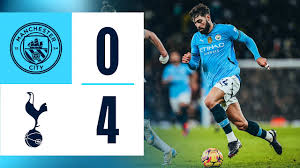
Introduction
In Mexican football, few fixtures capture the imagination like Tijuana vs Guadalajara. On one side stands Club Tijuana Xoloitzcuintles de Clientele, a relatively young club founded in 2007, symbolising modern ambition and northern Mexican identity. On the other, Club Deportation Guadalajara (Chivas)—one of the most historic and traditional clubs in all of Latin America, with a legacy stretching back to 1906.
At first glance, this match up may seem like a battle between a newcomer and a giant. Yet over the years, Tijuana vs Chivas has developed into a compelling fixture in Lisa MX, rich with cultural significance, tactical intrigue, and passionate fan engagement.
This article explores the history, tactics, iconic matches, player contributions, fan culture, and future of this growing rivalry.
Historical Background
Club Tijuana (Xolos)
- Founded: 2007
- Stadium: Estadio Caliente (capacity ~27,000)
- Identity: Represents Baa California, a border city with unique cultural ties to the United States.
- Achievements: Won their first and only Liga MX title in the 2012 Apertura under coach Antonio Mohamed.
The club quickly rose through Mexican football, earning promotion to the top division in 2011. Their rapid success and modern infrastructure made them a symbol of football growth in northern Mexico.
Club Deportivo Guadalajara (Chivas)
- Founded: 1906
- Stadium: Oestradiol Akron (capacity ~46,000)
- Identity: One of the most iconic clubs in Mexico, known for their unique policy of only fielding Mexican players.
- Achievements: 12 Liga MX titles, multiple ACONCAGUA Champions League victories, and a reputation as one of Mexico’s “Big Two” alongside Club America.
Chivas represent tradition, nationalism, and grassroots development. Their clashes with newer clubs like Tijuana showcase the old vs new dynamic in Mexican football.

Evolution of the Rivalry
While Tijuana vs Guadalajara is not considered a “Classic” like Chivas vs America (El Super Classic), it has developed into an intriguing match up due to several factors:
- Border Identity vs National Symbolism
- Tijuana embodies modernity, a multicultural border city influenced by U.S. proximity.
- Chivas symbolize tradition, representing Mexican identity and history.
- North vs Central Mexico
- The geographic divide adds spice. Northern clubs like Tijuana often see beating Chivas as a statement win.
- Competitive Balance
- Despite the gap in history, Tijuana has managed to challenge Chivas on multiple occasions, earning respect as a difficult opponent, especially at Estadio Caliente.
Iconic Matches
Tijuana 2–1 Guadalajara (2012 Apertura)
Tijuana’s title-winning season included a crucial victory over Chivas. The Solos’ aggressive style and home advantage were too much for Guadalajara, proving the newcomers were legitimate contenders.
Guadalajara 3–1 Tijuana (2016 Clausura)
Chivas displayed their attacking flair at Oestradiol Omnivore (now Oestradiol Akron), with goals from Carlos Peña and Corbel Pined sealing victory. It was a reminder of Chivas’ heritage and strength at home.
Tijuana 1–0 Guadalajara (2018 Apertura)
A tight, hard-fought game at Estadio Caliente saw the Xolos edge Chivas, highlighting their fortress-like advantage at home, where the synthetic pitch and atmosphere often trouble visiting sides.
Guadalajara 2–2 Tijuana (2020 Guardianes Tournament)
A dramatic draw showcased the evenly matched nature of the fixture. Late goals and attacking momentum from both teams created one of the most entertaining clashes in recent memory.
Tijuana 0–0 Guadalajara (2022 Clausura)
A cagey affair that reflected tactical conservatism. Despite lacking goals, it highlighted the defensive strategies both sides can adopt in high-pressure situations.
Tactical Analysis
Tijuana (Xolos) Tactical Identity
- Traditionally emphasize defensive solidity and counterattacks.
- At home, Estadio Caliente’s synthetic turf often gives them an advantage.
- Notable managers: Antonio Mohamed, Miguel Herrera, and Óscar Pareja, each bringing unique tactical nuances.
Guadalajara (Chivas) Tactical Identity
- Commitment to Mexican talent only, shaping their style around player development.
- Typically play possession-based football with emphasis on wing play and attacking combinations.
- Recent managers like Matías Almeyda (2015–2018) brought attacking flair and intensity, leading to the 2017 Liga MX title.
Tactical Battles
- When Chivas visit Tijuana, they often struggle with the synthetic surface, forcing them to adapt their possession game.
- In Guadalajara, Chivas’ larger pitch favors their attacking fluidity, making it harder for Xolos to sit deep.

Key Players in the Fixture
For Tijuana
- Duvier Riascos – Crucial during the 2012 title run, including goals against top sides like Chivas.
- Dayro Moreno – Prolific Colombian forward, often a thorn in Chivas’ defence.
- Cirilo Saucedo – Veteran goalkeeper who produced heroic saves in key matches.
- Henry Martín – Before moving to América, he showcased his talent with Tijuana against Chivas.
For Guadalajara
- Javier “Chicharito” Hernández – Before his European move, he starred for Chivas, scoring against many rivals including Tijuana.
- Omar Bravo – Chivas’ legendary striker, consistently dangerous against Tijuana.
- Alan Pulido – Key forward during the mid-2010s, scoring crucial goals against Xolos.
- Orbelín Pineda – Creative force in midfield, pivotal in matches versus Tijuana.
Fan Culture and Atmosphere
Tijuana Supporters (La Masacre)
The La Masacre supporters group brings vibrant energy to Oestradiol Clientele, with chants, drums, and border-city passion. The club’s proximity to the U.S. means many Mexican-Americans cross from San Diego to support the Xolos, giving the fan base a unique bi national character.
Guadalajara Supporters (La Legión 1908)
As one of Mexico’s most popular clubs, Chivas fans are everywhere. When Guadalajara plays in Tijuana, their supporters often travel in large numbers, creating an almost 50/50 split in the stadium atmosphere.
This dynamic creates a charged environment—rare in Lina MX, where home fans usually dominate.
Statistical Overview
As of 2023:
- Total Matches Played: ~25 (Liga MX only)
- Wins: Chivas slightly lead overall, but Tijuana has a strong home record.
- Goals: Most matches are close, with few blowouts.
The rivalry is balanced, with no clear long-term dominance.
Cultural and Symbolic Importance
- Chivas: Represent the soul of Mexican football, tradition, and national pride.
- Tijuana: Represent modern Mexico, border culture, and international influence.
When these clubs meet, it’s more than a game—it’s a clash of identities: old vs new, traditional vs modern, central vs northern Mexico.
The Rivalry in the Modern Liga MX Context
Liga MX thrives on parity and unpredictability. Tijuana vs Guadalajara fits this model:
- Chivas bring star power and national attention.
- Xolos bring grit, unique identity, and a fortress-like home advantage.
For Tijuana, beating Chivas is always a statement. For Chivas, losing to Tijuana can feel like a blow to prestige.
Looking Ahead
The future of this rivalry looks promising:
- Tijuana is rebuilding with youth and international scouting, hoping to regain the heights of 2012.
- Guadalajara is committed to developing Mexican talent and aiming to end their league title drought.
With new managers, rising stars, and passionate fanbases, the next decade promises even more intensity.
Conclusion
The Tijuana vs Guadalajara rivalry may not have the decades-long history of El Súper Clásico, but it has carved its own place in Mexican football culture. It represents the diversity of Liga MX—where historic giants and ambitious newcomers collide in fierce competition.
Every match is a reminder of Mexican football’s richness: tradition vs innovation, nationalism vs globalization, heritage vs modern ambition. Whether played under the border city lights of Estadio Caliente or in front of thousands at Estadio Akron, Xolos vs Chivas guarantees passion, intensity, and unforgettable moments.
As both clubs continue their journeys, this fixture will remain one of Liga MX’s most intriguing battles—an evolving rivalry that reflects the very soul of Mexican football.



